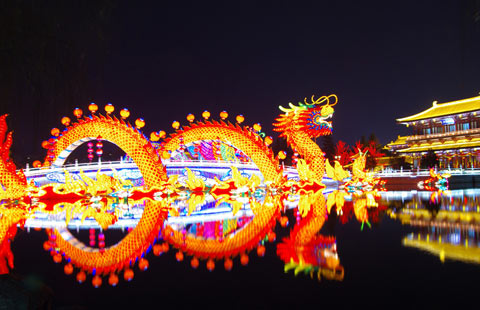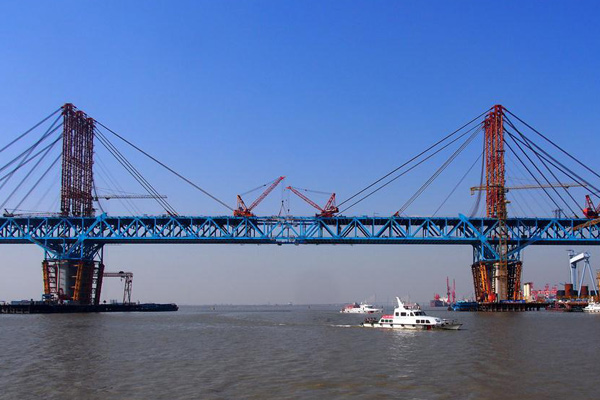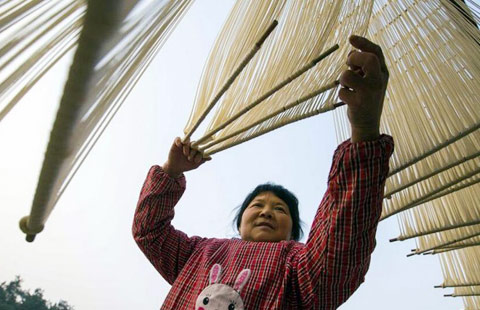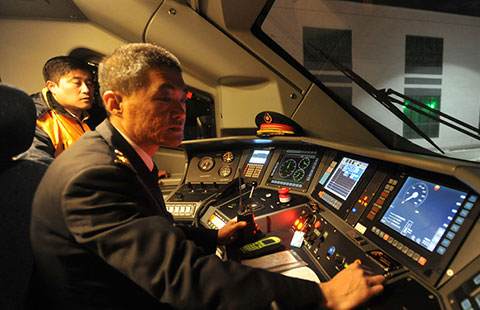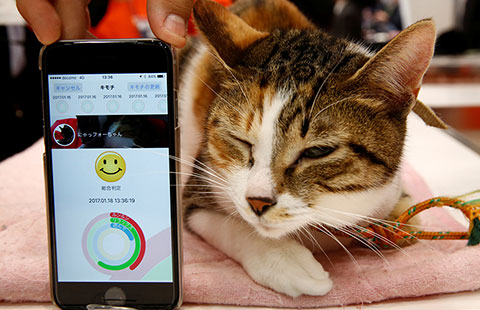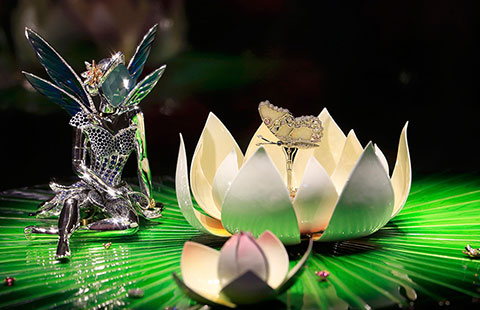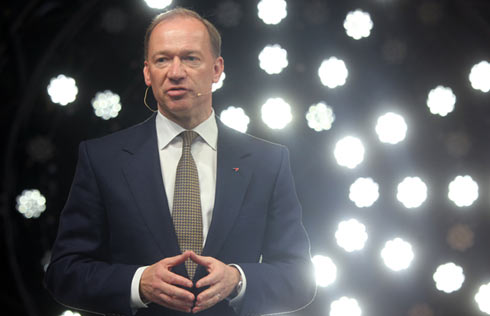Are Chinese firms capable of achieving excellence?
 |
|
Pedestrians walk past a shop window of luxury brands in Beijing. [Photo by Wu Changqing/For China Daily] |
Last weekend, a friend and I were at a mall in Beijing's Dawanglu area that houses the world's finest superbrands of premium luxury goods. It didn't require much effort to discern that almost all of them were from continental Europe.
Enticed as much by their plush, bright and immaculate stores as their pretty, posh salesgirls with cut-glass accents, we found ourselves pulled toward the testers on the shelves.
Perfumes, oils, lotions, creams and other assorted products we didn't even know existed vied for our attention.
One whiff of a divine-scented "creme" in an exquisitely shaped container, whose lid opened ever so smoothly, transported us to an otherworldly realm. The price-tag hurled us back to terra firma the next instant. But both of us agreed, without much argument or knowledge, that it must be worth its price.
Its texture, look, fragrance, the container's feel and shape, even the label's text fonts and colors ... all had an endearing fine quality to them. So it was with every product on every shelf of every store-cosmetics, perfumes, toiletries, fashion or travel goods ... as if it was a celebration of human excellence, man's mastery of the material realm, a testimony to his/her capabilities. If ever perfection was achieved in man-made stuff, this must be it, we thought.
But then, the overwhelming European presence-Asian labels were conspicuous by their absence-set us thinking. Are Chinese incapable of perfection?
It's a question akin to the headline-"Do Indians lack the spirit of excellence?"-of a magazine cover story that I wrote more than a quarter-century ago.
Both China and India are billion-plus nations. In terms of both market size and human resources, the two nations represent humongous potential. Yet, the reality is, in terms of the quality of their manufactured products and services, both China and India still lag the West, bogged down by descriptions like "developing economies".
The capacity for precision, excellence or perfection in manufacturing, which seems second nature to continental Europe, somehow appears beyond the reach of Asia. Why?
It's a question that has been troubling Premier Li Keqiang. The quest for quality is behind his current drive for innovation and China's desire to upgrade its manufacturing prowess.
China has been desperately, untiringly trying to transition from a mass producer and exporter of cheap or ordinary goods to a provider of world-class products, services and technologies.
But, so far, successes, like DJI's drones, have been few and far between. So, it was with some glee that State-owned Taiyuan Iron and Steel Co Ltd announced last fortnight that after five years of research, it has been finally able to make ... not Mars-resistant, rustproof, spacecraft-grade metal but-wait for it-a world-class tip, or the 2.3mm ball, of a ballpoint pen.
TISCO's tiny tip made big headlines globally. For, Premier Li's televised lament last year was that although China is the world's biggest manufacturer of ballpoint pens, its 38 billion implements made every year by 3,000 penmakers were "rough" compared with those from Switzerland, Germany and Japan.
TISCO's reported success, if commercialized, could save China 120 million yuan ($17 million) a year in ball imports-small amount relatively, but TISCO balls' symbolic significance is immense.
Quality in all other products that China makes could produce huge gains in the long run. Excellence and perfection go hand in hand with the ability to adapt, improvise, innovate and evolve constantly.
Some industries appear to have that ability more than others. As the digital dimension threatens the physical (or bricks-and-mortar) business model, industries like media and entertainment, retail, telecommunications, travel, financial services and healthcare are responding positively, by trying to convert the challenge into an opportunity.
For example, China is now seen as a master of e-commerce, the role model for the rest of the world, in terms of logistics, range, scale and online technologies. Yet, e-commerce pioneer Alibaba, whose rock star-statured chief Jack Ma was among the first to be granted an audience with then US President-elect Donald Trump (on Jan 10), does not have the sheen of a superbrand yet.
To find out why, Ma and his ilk may want to visit the Dawanglu mall.






